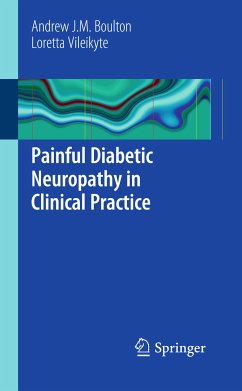
Diabetes and the Brain (eBook, PDF)
Versandkostenfrei!
Sofort per Download lieferbar
160,95 €
inkl. MwSt.
Weitere Ausgaben:

PAYBACK Punkte
80 °P sammeln!
Diabetes, particularly type 2, has become increasingly more common around the world. Consequently, the effect of diabetes on the brain has achieved enormous public health importance. A surge in pre-clinical and clinical research on topics ranging from management of hyperglycemia in acute stroke to disturbances in insulin signaling in Alzheimer's disease has led to substantial progress in the field. Written by a panel of international experts, Diabetes and the Brain provides in depth reviews on the cerebral complications of diabetes, and offers introductory chapters on current insights on the p...
Diabetes, particularly type 2, has become increasingly more common around the world. Consequently, the effect of diabetes on the brain has achieved enormous public health importance. A surge in pre-clinical and clinical research on topics ranging from management of hyperglycemia in acute stroke to disturbances in insulin signaling in Alzheimer's disease has led to substantial progress in the field. Written by a panel of international experts, Diabetes and the Brain provides in depth reviews on the cerebral complications of diabetes, and offers introductory chapters on current insights on the pathophysiology and clinical management of diabetes, as well as neuropsychological assessment and dementia. This relevant and easily accessible book explains the cerebral complications of diabetes, with an update on diabetes for neurologists, psychiatrists, and mental health providers and researchers in general,and on stroke and dementia for those involved in research and clinical practice in diabetes.
Dieser Download kann aus rechtlichen Gründen nur mit Rechnungsadresse in A, B, BG, CY, CZ, D, DK, EW, E, FIN, F, GR, HR, H, IRL, I, LT, L, LR, M, NL, PL, P, R, S, SLO, SK ausgeliefert werden.












